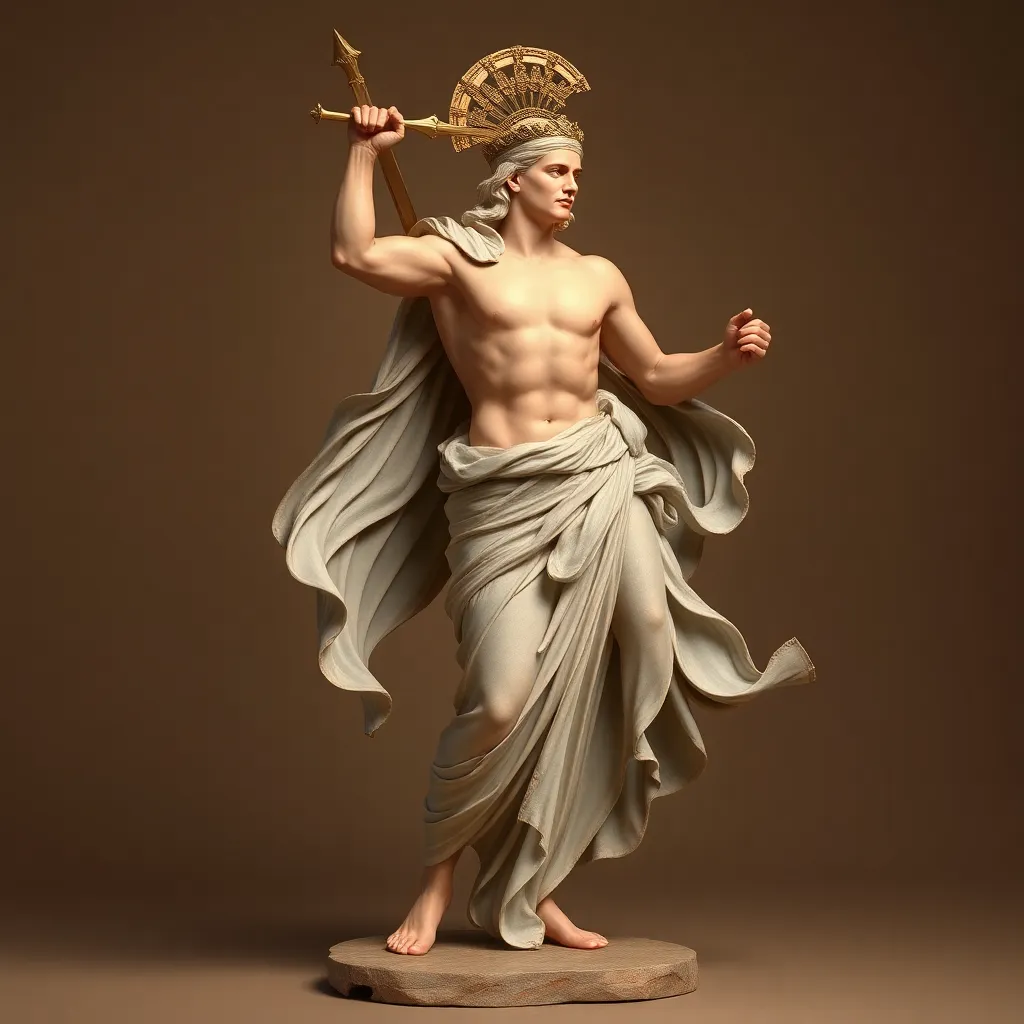The Role of Apollo in the Myths of Atalanta: A Fierce Competitor
I. Introduction
Atalanta holds a prominent place in Greek mythology, celebrated for her remarkable speed, hunting prowess, and independence. She is often viewed as a symbol of female strength and defiance against traditional gender roles. Her stories resonate with themes of competition and the struggle for identity in a male-dominated world.
Apollo, one of the twelve Olympian gods, embodies numerous attributes including light, music, prophecy, and archery. His narratives are woven deeply into the fabric of Greek culture, influencing many heroes and heroines. The purpose of this article is to explore Apollo’s significant influence on Atalanta’s story, examining their intertwined myths and the themes of competition and divine intervention.
II. Atalanta: The Swift Huntress
Atalanta’s origins are rooted in various mythological accounts. She is often depicted as the daughter of King Iasus of Boeotia or, in some versions, the daughter of Arcadian King Schoeneus. Abandoned at birth due to her father’s preference for male heirs, Atalanta was raised by a she-bear and later discovered by hunters.
Key traits that define Atalanta include:
- Speed: Renowned as the fastest runner, she could outrun any man, making her a fierce competitor.
- Strength: Atalanta was not only swift but also a skilled hunter, excelling in archery.
- Independence: She defied societal norms, choosing to remain unmarried and pursue her passions.
Atalanta’s story places her among the great heroes and heroines of Greek mythology, where her character challenges the expectations placed upon women of her time.
III. Apollo: The Multifaceted God
Apollo is a complex deity associated with various domains. He is the god of the sun, music, healing, archery, and prophecy. As the epitome of youthful beauty and vigor, he represents the ideal male form and intellect.
Apollo’s role in Greek culture is significant, as he was worshipped in various religious practices and festivals, most notably the Pythian Games, which celebrated athletic prowess. His emphasis on competition is evident in:
- His patronage of the Olympic Games, where athletes competed for glory.
- His association with the Muses, inspiring artistic and athletic endeavors.
IV. The Intersection of Apollo and Atalanta’s Myths
While Atalanta and Apollo do not frequently appear together in myths, there are instances where their stories intersect. One of the most notable events is the Calydonian Boar Hunt, where Atalanta plays a crucial role. In this myth, Apollo sends the monstrous boar to ravage Calydon as punishment for King Oeneus’s failure to honor him with sacrifices.
During the hunt, Atalanta’s skills shine, and she ultimately lands the first blow on the beast. Apollo’s influence is felt strongly, as his actions led to the hunt, and his presence looms over the competition among the hunters. The interplay of their narratives highlights the tension between divine will and human agency.
V. The Significance of Competition in Their Stories
Competition is a recurring theme in Greek mythology, reflecting the values of honor, excellence, and the human condition. Apollo’s associations with contests, such as the Pythian Games and the Trojan War, underscore the importance of rivalry and skill.
Atalanta, as a fierce competitor, embodies these themes. Her challenges, such as outpacing her suitors in a race to win her hand in marriage, illustrate her unwillingness to conform to societal expectations. She famously declared that any man who could not beat her in a race would face death.
VI. The Role of Divine Intervention
Divine intervention is a significant element in many Greek myths, and Apollo’s influence on Atalanta’s life can be seen in key moments. While he does not directly intervene in her personal choices, his actions set the stage for pivotal events. For example:
- In the Calydonian Boar Hunt, Apollo’s decision to unleash the boar creates a context for Atalanta’s heroism.
- His oversight of competitions and athletic prowess further enhances the significance of Atalanta’s challenges.
The impact of divine support or opposition is a common theme in mythology, often determining the fates of heroes. In Atalanta’s case, Apollo’s presence underscores the tension between fate and free will.
VII. Symbolism and Themes
The narratives of Apollo and Atalanta are rich with symbolism. Apollo represents:
- Masculinity: He embodies the ideals of male beauty and athleticism.
- Competition: His role as a patron of games highlights the significance of rivalry.
Atalanta, in contrast, symbolizes:
- Femininity: She challenges traditional gender roles through her strength and independence.
- Rivalry: Her competitive nature places her in direct opposition to male counterparts.
Together, their stories convey lessons about the nature of competition, the balance of power, and the complexities of identity in a mythological context.
VIII. Conclusion
Apollo’s role in shaping Atalanta’s story is profound, illustrating the interplay between divine influence and human endeavor. Their relationship serves as a reflection of the significant themes of competition, gender dynamics, and the quest for identity in Greek mythology.
As we reflect on the enduring legacy of Atalanta and Apollo, we recognize their continued relevance in contemporary culture, inspiring discussions about strength, competition, and the roles of men and women in society. Their stories remind us of the complexities of our own narratives, echoing through time as symbols of resilience and rivalry.




